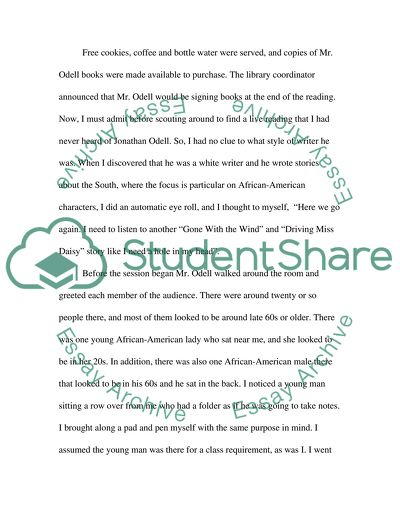Cite this document
(“Live literary reading Essay Example | Topics and Well Written Essays - 3250 words”, n.d.)
Retrieved from https://studentshare.org/literature/1400214-live-literary-reading
Retrieved from https://studentshare.org/literature/1400214-live-literary-reading
(Live Literary Reading Essay Example | Topics and Well Written Essays - 3250 Words)
https://studentshare.org/literature/1400214-live-literary-reading.
https://studentshare.org/literature/1400214-live-literary-reading.
“Live Literary Reading Essay Example | Topics and Well Written Essays - 3250 Words”, n.d. https://studentshare.org/literature/1400214-live-literary-reading.


